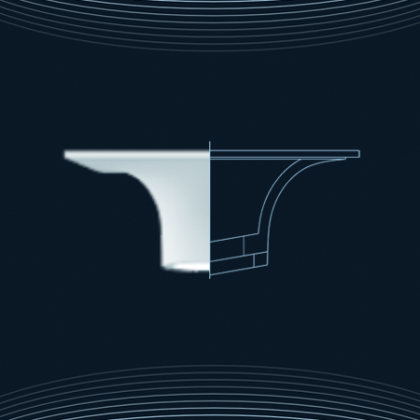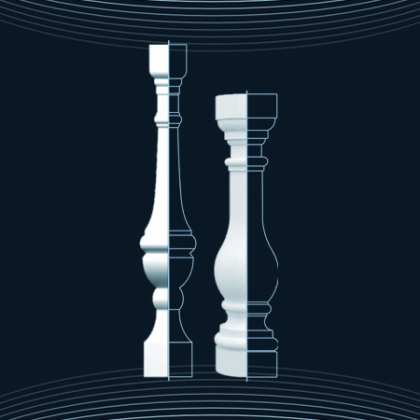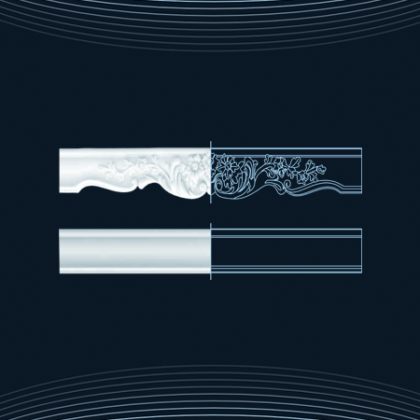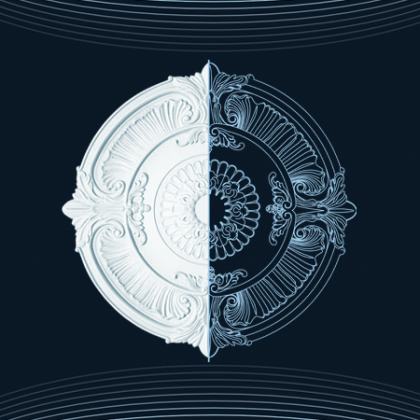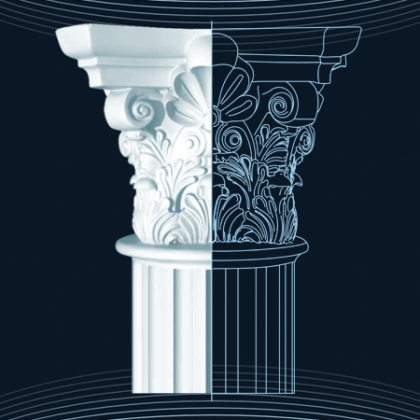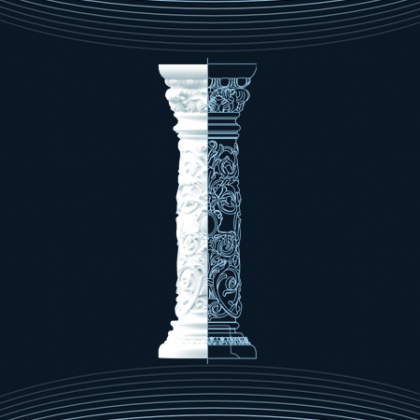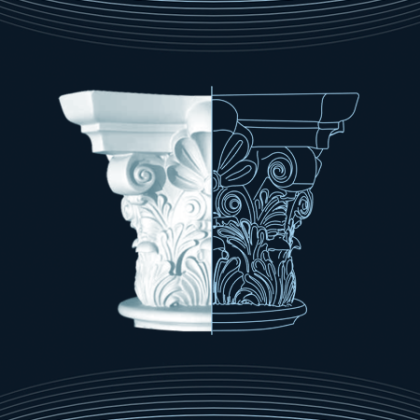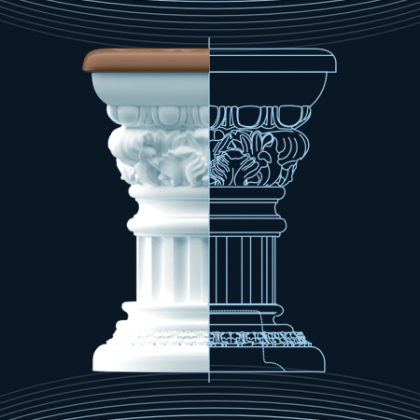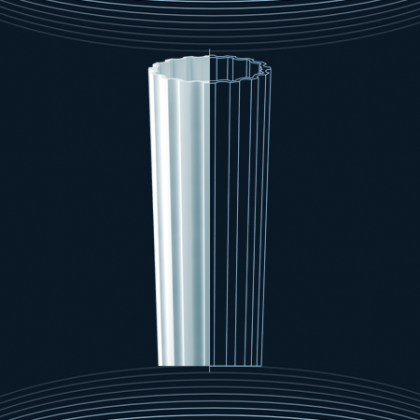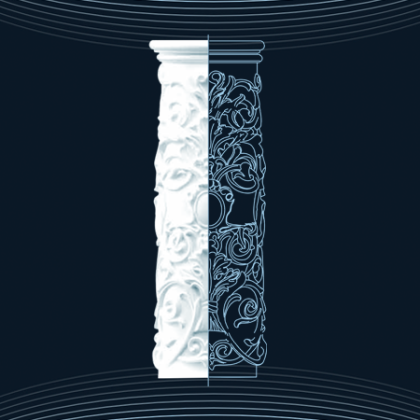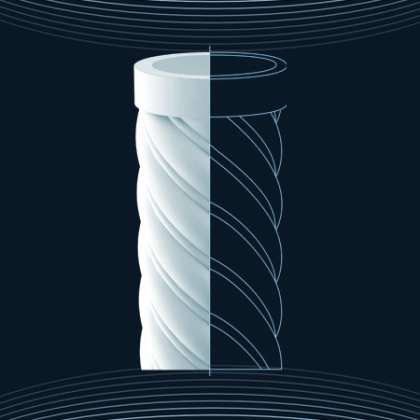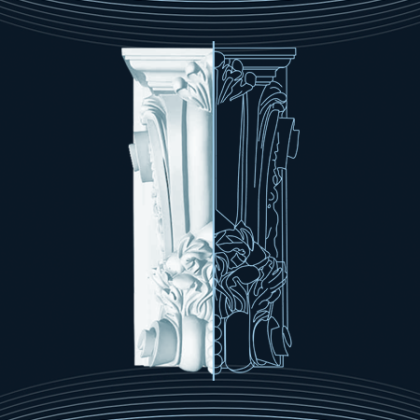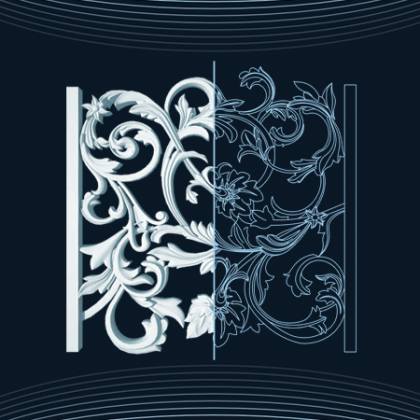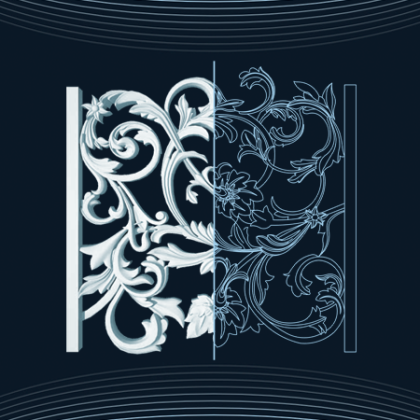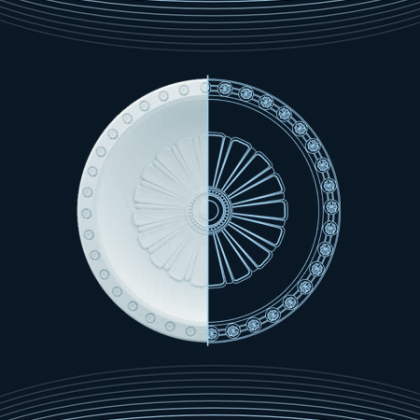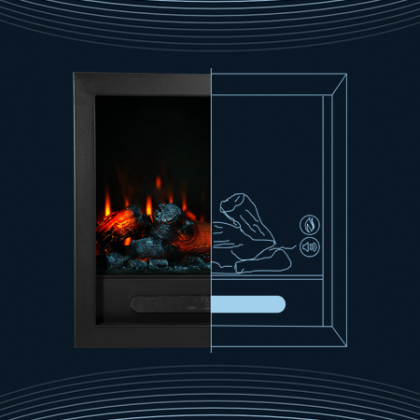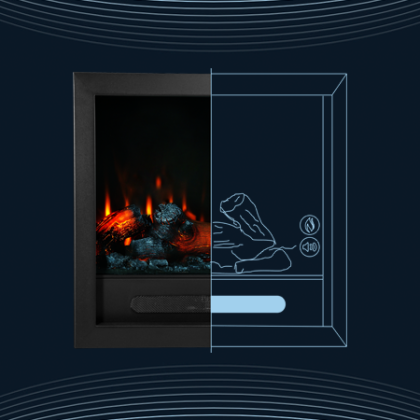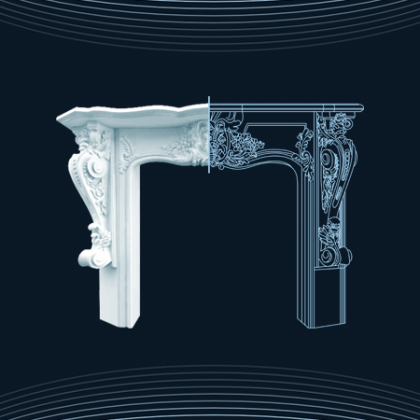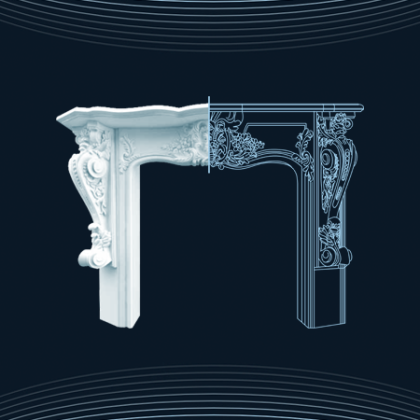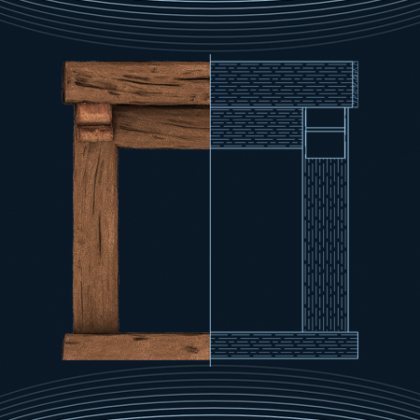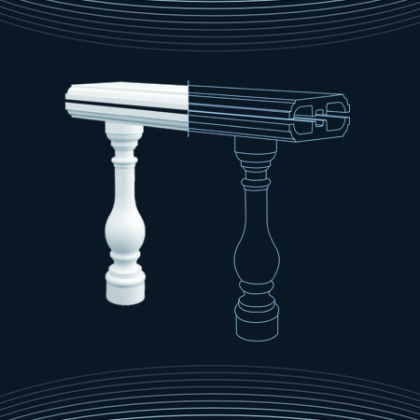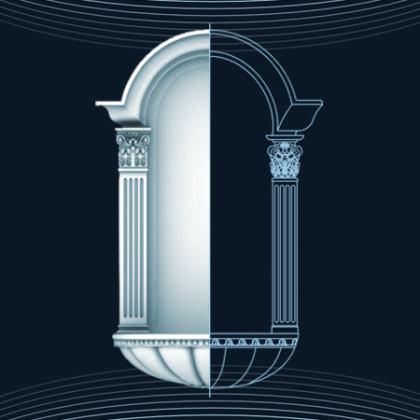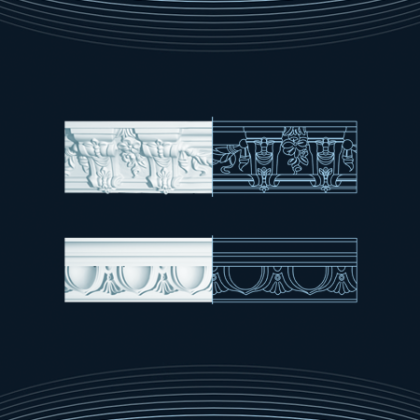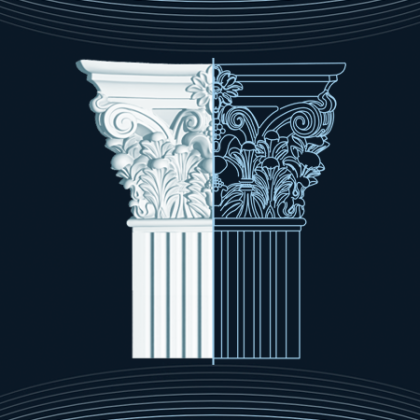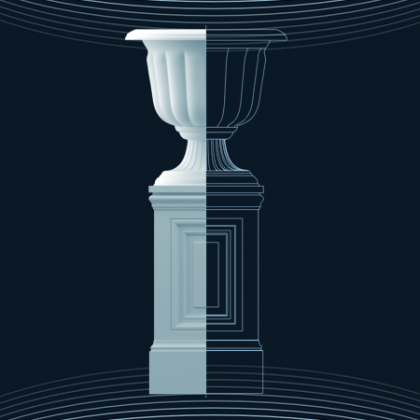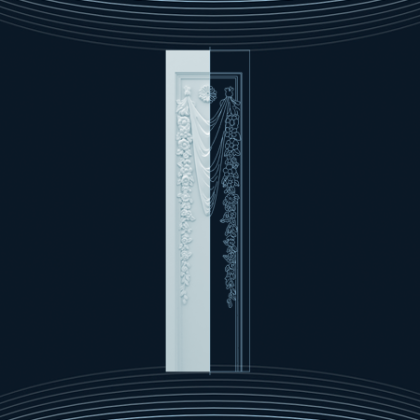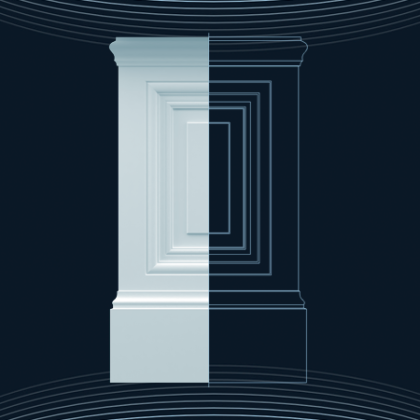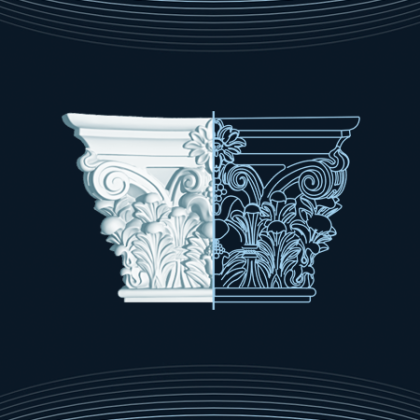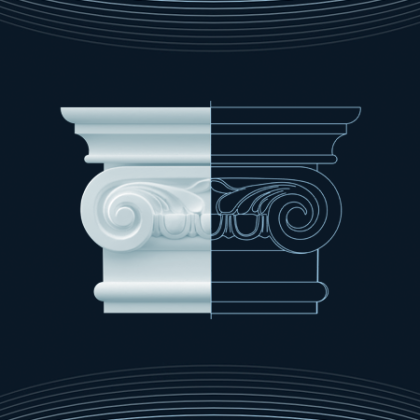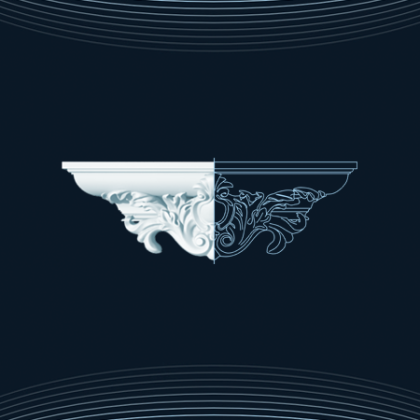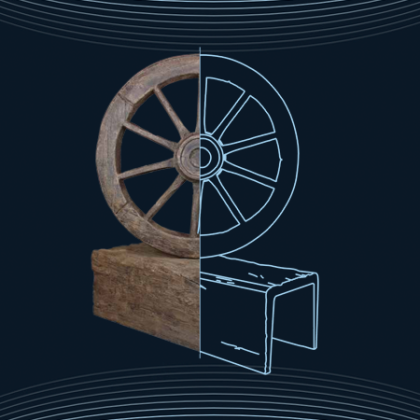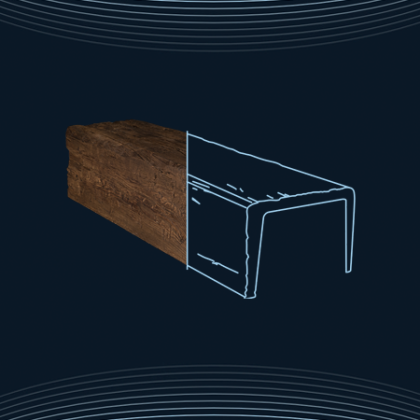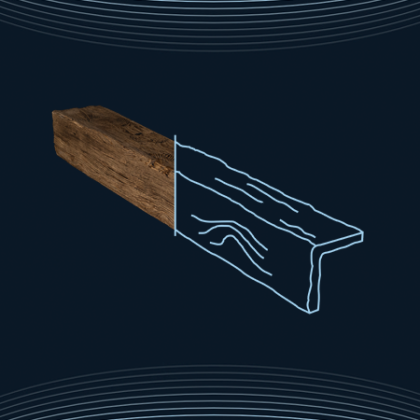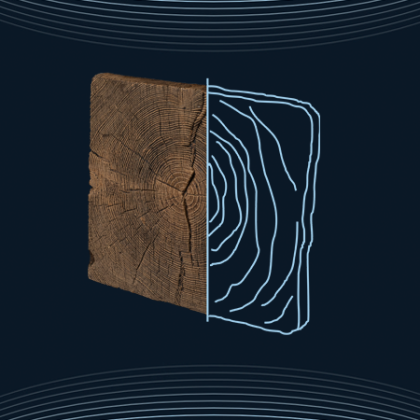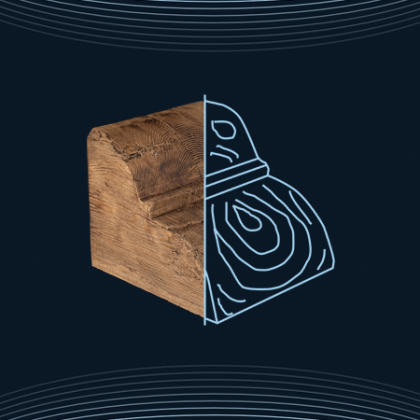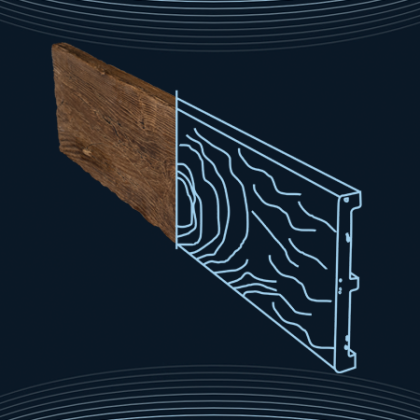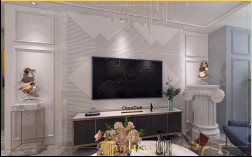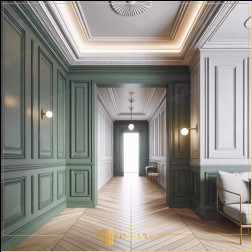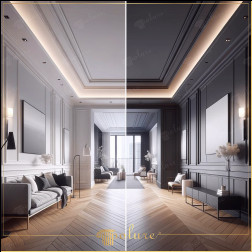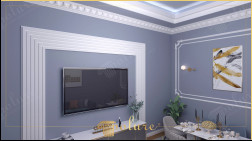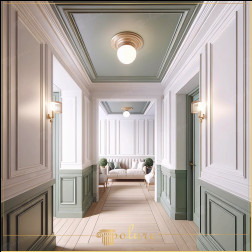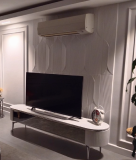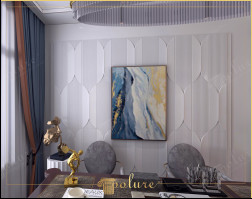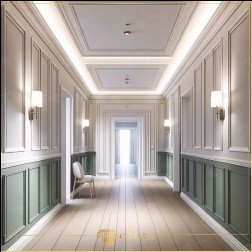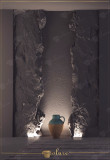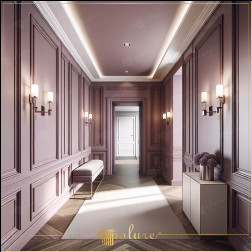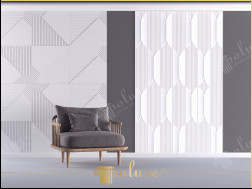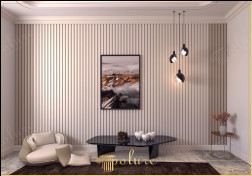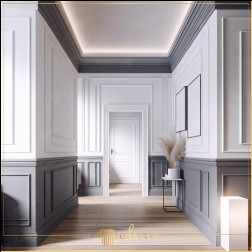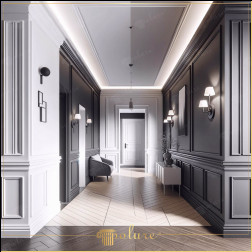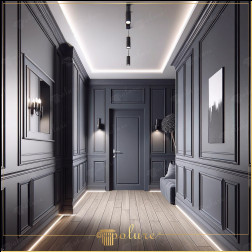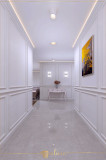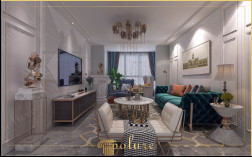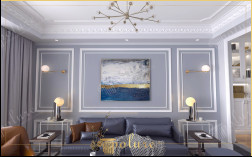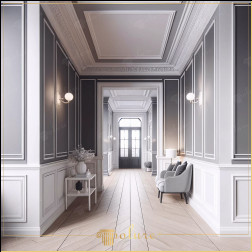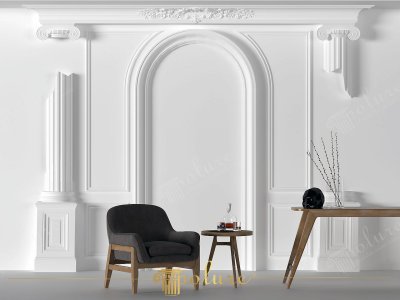
Polyurethane wall decoration ideas involve using lightweight, durable materials to enhance the appearance of walls. These can include moldings, panels, and decorative elements that mimic the look of more expensive materials like wood or stone, offering an affordable way to add elegance and style to any room.
Decorating your walls can significantly enhance the ambiance of your space. One innovative material that has gained popularity for its versatility, durability, and aesthetic appeal is polyurethane. This lightweight material can be molded into various designs, making it ideal for wall decor. Here are some polyurethane wall decoration ideas to inspire your next home makeover. Transform your plain walls into a statement piece with 3D wall panels made of polyurethane. These panels come in various patterns and designs, from geometric shapes to intricate floral motifs. They add texture and depth to your walls, creating a visually appealing space. Polyurethane crown moldings can add elegance and character to any room. They are easy to install and can be painted to match your decor. Whether you opt for simple designs or more elaborate ones, crown moldings provide a classic finishing touch to your walls. Create a focal point in your room with a polyurethane wall niche. These decorative recesses are perfect for displaying art, photographs, or decorative items. Wall niches not only enhance the aesthetic appeal of your space but also add functional storage. Add architectural interest to your walls with decorative brackets and corbels made of polyurethane. These elements can support shelves, making them both a practical and decorative addition to your space. Choose from a variety of styles to complement your home's decor. Frame your walls with polyurethane wall frames and accents. These decorative elements can outline doorways, windows, or even sections of your wall, creating a sophisticated and cohesive look. They are an easy way to add charm and character to your interiors. Polyurethane wall decorations offer a unique way to personalize and enhance your living space. With their durability and ease of installation, they provide a practical yet stylish solution for wall decor. Consider incorporating these ideas into your home to create a space that reflects your personal style and taste.Polyurethane Wall Decoration Ideas
3D Wall Panels
Crown Moldings
Wall Niches
Decorative Brackets and Corbels
Wall Frames and Accents
Wall decoration ideas and wall decor have played a significant role throughout history. They have been used to beautify living spaces, convey social status, express cultural and personal identity, and communicate beliefs and values. From ancient cave paintings to modern art installations, wall decor reflects the evolution of human societies and their artistic expressions.
Wall decorations have been a fundamental aspect of human expression and interior design for thousands of years. From the ancient cave paintings of Lascaux to the intricate frescoes of the Renaissance, wall decor has served not only as an aesthetic enhancement but also as a means of communication and storytelling. This article explores the evolution and significance of wall decoration ideas throughout history. The earliest forms of wall decor can be traced back to the prehistoric cave paintings found in regions like Lascaux, France. These paintings, created over 17,000 years ago, were not merely decorative; they were expressions of early human creativity and are thought to have had ritualistic or educational purposes. In ancient Egypt, wall decorations were predominantly found in tombs and temples. Hieroglyphics, paintings, and reliefs served both decorative and functional roles, aiming to honor the gods and guide the deceased to the afterlife. Similarly, the Romans and Greeks used frescoes and mosaics to depict mythological scenes, daily life, and landscapes, showcasing their artistic skills and cultural values. The Middle Ages saw the rise of religious-themed wall decor, with churches and cathedrals adorned with frescoes, tapestries, and stained glass that depicted biblical stories. The Renaissance period brought a significant shift, with a renewed focus on humanism and naturalism. Artists like Michelangelo and Leonardo da Vinci transformed walls into canvases, creating some of the most celebrated masterpieces in history. With the advent of new technologies and materials, the 20th and 21st centuries have seen a diversification in wall decor. Wallpaper, photography, and digital art have become popular, allowing for personal expression in both public spaces and homes. Today, wall decoration ideas are as varied as ever, reflecting a wide range of cultural influences, artistic movements, and individual tastes. Wall decorations have played a significant role in human history, evolving from primitive drawings to sophisticated art forms. They not only beautify spaces but also serve as a mirror reflecting societal values, historical events, and personal identities. As we continue to innovate and express ourselves, the walls around us will undoubtedly remain a canvas for our stories and imaginations.The Historical Significance of Wall Decorations
Prehistoric Times
Ancient Civilizations
The Middle Ages to the Renaissance
Modern and Contemporary Times
Conclusion
Ideas for decorating walls with polyurethane - Characteristics of wall decor.
Polyurethane Wall Decoration Ideas and Properties
Polyurethane is a versatile material widely used in the interior design industry, particularly for wall decorations. Its unique properties make it an excellent choice for creating intricate designs and patterns on walls, adding both aesthetic appeal and functionality to any space. In this article, we will explore some creative polyurethane wall decoration ideas and discuss the properties that make polyurethane an ideal material for wall decor.
Ideas for Polyurethane Wall Decorations
- 3D Wall Panels: Polyurethane wall panels can transform any room with their three-dimensional patterns. These panels can mimic various textures like stone, brick, or wood, offering a cost-effective alternative to natural materials.
- Crown Moldings: Add elegance and character to your rooms with polyurethane crown moldings. They are lightweight, easy to install, and can be painted to match any decor.
- Decorative Brackets and Corbels: Use polyurethane brackets and corbels under shelves or as standalone decorative elements to add a touch of sophistication to your interiors.
- Wall Niches: Polyurethane wall niches provide a perfect spot for displaying art, sculptures, or decorative items, adding depth and interest to your walls.
- Door and Window Trims: Enhance the appearance of doors and windows with polyurethane trims. These trims can be designed to complement the style of any room, from classic to contemporary.
Properties of Polyurethane for Wall Decor
Polyurethane wall decorations offer several advantageous properties:
- Durability: Polyurethane is resistant to wear, tear, and environmental factors, making it a long-lasting option for wall decor.
- Lightweight: Despite its durability, polyurethane is surprisingly lightweight, which simplifies the installation process and reduces the load on structural elements.
- Flexibility: Polyurethane can be molded into a wide variety of shapes and designs, allowing for endless creative possibilities.
- Cost-effectiveness: Compared to natural materials, polyurethane is more affordable and offers a similar aesthetic appeal and functionality.
- Easy Maintenance: Wall decorations made from polyurethane are easy to clean and maintain, requiring only occasional dusting or wiping with a damp cloth.
In conclusion, polyurethane wall decorations offer a blend of aesthetic appeal, functionality, and durability. With a wide range of design possibilities and easy maintenance, polyurethane is an excellent choice for enhancing the walls of any home or commercial space.
Yes, the uses of polyurethane for wall decoration and wall decor are distinct.
Polyurethane is a versatile material widely used in various applications, including wall decoration. Its flexibility, durability, and ease of molding make it an excellent choice for creating intricate designs and patterns on walls. Polyurethane can be utilized in several ways for wall decor, including: Using polyurethane in wall decoration offers several benefits, such as: The usage areas of polyurethane in wall decoration are vast and varied. From 3D wall panels to intricate moldings, polyurethane offers a practical and aesthetically pleasing solution for enhancing wall decor. Its durability, flexibility, and cost-effectiveness make it an attractive choice for both residential and commercial spaces.Polyurethane in Wall Decoration
Introduction
Usage Areas of Polyurethane in Wall Decoration
Advantages of Polyurethane in Wall Decor
Conclusion
Ideas for decorating walls with polyurethane - Models of wall decorations.
Transforming your living space into a visually appealing and comfortable environment is essential for a harmonious home. Polyurethane wall decorations offer a versatile, durable, and stylish way to beautify your walls. Here are some innovative polyurethane wall decor models to inspire your next home makeover. 3D polyurethane wall panels bring texture and depth to your walls. They come in various designs, from geometric patterns to waves and more. These panels can be painted to match your interior, making them a flexible option for any room. Add elegance and charm to your rooms with polyurethane crown moldings. They are lightweight, easy to install, and can be painted in any color. Crown moldings frame your space, giving it a refined and polished look. Wall niches made of polyurethane not only add architectural interest but also provide space for displaying art, books, or decorative items. They can be a focal point in any room, adding both functionality and beauty. Use polyurethane brackets and corbels to support shelves or as standalone decorative elements. Their intricate designs can complement various interior styles, from classical to contemporary. For those who want a truly unique wall, custom polyurethane murals offer endless possibilities. Whether it's a landscape, abstract art, or a personal design, these murals can bring your walls to life. Polyurethane wall decorations are not only aesthetically pleasing but also practical. They are water-resistant, durable, and easy to maintain, making them suitable for any room, including kitchens and bathrooms. With these ideas, you can easily elevate the look of your home.Polyurethane Wall Decoration Ideas
3D Wall Panels
Crown Moldings
Wall Niches
Decorative Brackets and Corbels
Custom Wall Murals
Can polyurethane wall decor be used outside?
When it comes to decorating the exterior walls of our homes, durability and aesthetic appeal are key considerations. Polyurethane wall decorations have emerged as a popular choice for homeowners looking to add a touch of elegance and longevity to their exterior walls. This article explores the feasibility of using polyurethane wall decor on exterior surfaces and provides some creative ideas to enhance your home's curb appeal. Polyurethane is known for its durability, weather resistance, and low maintenance requirements. It can withstand extreme temperatures, UV rays, and moisture, making it an ideal material for exterior wall decorations. Unlike wood or metal, polyurethane does not rot, rust, or corrode, ensuring that your wall decor remains in pristine condition for years to come. Installing polyurethane wall decorations is relatively straightforward and can often be accomplished with standard tools and adhesives. It's important to ensure that the surface is clean and dry before installation to achieve the best adherence. Maintenance is minimal, requiring only occasional cleaning with soap and water to keep the decorations looking new. Polyurethane wall decorations offer a versatile, durable, and low-maintenance option for enhancing the exterior walls of your home. Whether you're looking to add architectural details or mimic the appearance of natural materials, polyurethane provides a cost-effective and long-lasting solution. With a variety of designs available, you can easily find the perfect match to complement your home's exterior and increase its curb appeal.Polyurethane Wall Decoration Ideas for Exterior Walls
Benefits of Using Polyurethane for Exterior Walls
Ideas for Polyurethane Wall Decorations
Installation and Maintenance
Conclusion
Yes, polyurethane wall decorations can be painted.
When it comes to revamping the interior of your home, painting over existing decorations can be a quick and effective way to change the ambiance of a room. If you have polyurethane wall decorations, you might be wondering if they can be painted over. The short answer is yes, but there are a few steps you should follow to ensure the best results. Before you begin painting your polyurethane wall decorations, proper preparation is crucial. Start by cleaning the surface of the decoration thoroughly to remove any dust, grease, or other contaminants. A mild detergent solution can be used for this purpose. After cleaning, make sure the decoration is completely dry. After cleaning, the next step is to lightly sand the surface of the polyurethane decoration. This will create a rougher surface that allows the paint to adhere better. Use fine-grit sandpaper and sand the surface gently to avoid damaging the decoration. Once sanded, wipe the surface down with a damp cloth to remove any dust. Applying a primer is essential for achieving a smooth and even finish. Use a high-quality primer that is suitable for use on polyurethane surfaces. Apply the primer evenly according to the manufacturer's instructions and let it dry completely. Once the primer is dry, you can begin painting your polyurethane wall decoration. Use a paint that is compatible with the primer and suitable for use on polyurethane. Acrylic and latex paints are good options. Apply the paint in thin, even coats, allowing each coat to dry thoroughly before applying the next. Depending on the color and type of paint, you may need several coats to achieve the desired finish. For added protection and durability, you may choose to seal the painted decoration with a clear sealer. This step is optional but can help protect the paint from scratches and wear over time. Apply the sealer according to the manufacturer's instructions and allow it to dry completely. Painting polyurethane wall decorations is a feasible project that can breathe new life into your home's interior. By following the steps of cleaning, sanding, priming, painting, and optionally sealing, you can transform your decorations into pieces that perfectly match your new decor. With a little effort and the right materials, your polyurethane wall decorations can look as good as new.Can Polyurethane Wall Decorations Be Painted?
Preparation is Key
Sanding
Primer
Painting
Sealing (Optional)
Conclusion
To apply polyurethane for wall decoration, follow these simplified steps: 1. Prepare the wall by cleaning and sanding it. 2. Apply a base coat if needed. 3. Stir the polyurethane gently to avoid bubbles. 4. Use a high-quality brush or roller to apply the polyurethane. 5. Apply thin, even coats, allowing each to dry as recommended. 6. Sand lightly between coats if the product advises. 7. Apply 2-3 coats for best results, ensuring full dry time. 8. Clean up with mineral spirits or as the product directs.
Decorating your walls can transform the ambiance of your room, and using polyurethane is a great way to add elegance and durability to your wall decor. Here’s how to apply polyurethane for wall decoration, along with some creative ideas to inspire you. Start by preparing your wall. Ensure it is clean, dry, and smooth. If you're applying polyurethane over paint or wallpaper, make sure the surface is free of grease and dust. Sanding the wall lightly can help the polyurethane adhere better. There are two types of polyurethane: water-based and oil-based. Water-based polyurethane dries quickly and has a minimal odor, making it ideal for indoor projects. Oil-based polyurethane is more durable and suitable for high-traffic areas, but it takes longer to dry and has a stronger odor. Apply a thin coat of polyurethane using a fine-bristle brush or a foam brush. Start from the top of the wall and work your way down, maintaining a wet edge to avoid lap marks. Allow the first coat to dry according to the manufacturer's instructions, then lightly sand the wall before applying the second coat. Applying polyurethane to your wall decor not only adds a layer of protection but also brings out the beauty of your designs. Whether you prefer a rustic, textured, or elegant look, there are endless possibilities to explore. Remember to work in a well-ventilated area and follow safety precautions when using polyurethane.How to Apply Polyurethane for Wall Decoration Ideas
Preparation
Choosing Polyurethane
Application
Decoration Ideas
Conclusion
Polyurethane wall decorations are durable and can mimic the look of wood or stone, while Styrofoam wall decorations are lightweight and cost-effective but less durable.
When it comes to decorating walls, both polyurethane and styrofoam materials offer unique advantages and characteristics. Choosing between them depends on various factors including durability, aesthetic appeal, and environmental impact. This article explores the differences between polyurethane and styrofoam wall decorations to help you make an informed decision. Polyurethane is a type of polymer that is flexible, durable, and resistant to both water and insects. It is often used in wall decorations for its ability to mimic the appearance of more expensive materials like wood and stone at a fraction of the cost. Polyurethane decorations are easy to install, lightweight, and can be painted to match any decor style. They are also more durable compared to styrofoam, making them suitable for both indoor and outdoor use. Styrofoam, also known as expanded polystyrene (EPS), is a lightweight, cost-effective material that is easy to shape and paint. While not as durable as polyurethane, styrofoam decorations are incredibly lightweight and offer excellent insulation properties. They are ideal for temporary setups or for use in areas where weight is a concern. However, styrofoam can be more susceptible to damage and may not be suitable for outdoor use. Both polyurethane and styrofoam wall decorations have their place in home decor. The choice between them should be based on the specific needs of your project, including considerations for durability, aesthetic preferences, cost, and environmental impact. By understanding the key differences between these materials, you can select the best option for your wall decoration ideas.Difference Between Polyurethane and Styrofoam Wall Decorations
Introduction
Polyurethane Wall Decorations
Styrofoam Wall Decorations
Key Differences
Conclusion
The difference lies in the materials and techniques used for wall decoration. Polyurethane wall decor involves using a type of plastic for decorative elements, while plaster wall decor involves using a mixture of water, gypsum, and sometimes fibers to create textured or sculpted designs on walls.
When it comes to wall decoration, choosing the right material can significantly impact the aesthetics and durability of your space. Two popular options are polyurethane and plaster wall decorations. This article will explore the differences between these materials to help you make an informed decision for your interior design needs. Polyurethane wall decorations are known for their lightweight, durability, and ease of installation. These decorations are made from a type of plastic that can be molded into various shapes and designs, ranging from intricate patterns to simple geometric forms. Polyurethane is resistant to moisture and will not warp or rot, making it an excellent choice for any area of your home, including bathrooms and kitchens. Additionally, polyurethane decorations can be easily painted to match any color scheme. Plaster wall decorations offer a classic and timeless appeal. Made from a mixture of water, gypsum, and sometimes fibers for added strength, plaster can be sculpted into detailed and ornate designs. These decorations add a sense of depth and texture to walls, providing a luxurious and sophisticated look. Plaster is naturally fire-resistant and has sound-dampening properties, making it a practical choice for living areas and bedrooms. However, plaster decorations are heavier than polyurethane and require a more careful installation process. Both polyurethane and plaster wall decorations have their unique advantages and can greatly enhance the look of your home. The choice between them depends on your specific needs, such as the desired aesthetic, the room's conditions, and how much maintenance you're willing to perform. Polyurethane is best for those seeking durability and ease of use, while plaster is ideal for those who prefer a more traditional look with depth and texture.Differences Between Polyurethane and Plaster Wall Decorations
Introduction
Polyurethane Wall Decorations
Plaster Wall Decorations
Comparison
Feature
Polyurethane
Plaster
Weight
Lightweight
Heavier
Installation
Easy
Requires care
Durability
High (moisture resistant)
Good (but can crack)
Aesthetic
Versatile
Classic and luxurious
Maintenance
Low
Higher
Conclusion
Polyurethane precast is made from a type of plastic that's strong and lightweight, while GRC precast is made from a mix of cement and glass fibers, making it durable and good for detailed designs.
In the world of construction, precast elements are essential for their durability, versatility, and ease of installation. Among the materials used for precast elements, polyurethane and Glassfibre Reinforced Concrete (GRC) stand out. Though both materials are used to create strong, durable precast elements, they have distinct characteristics and applications. Polyurethane precast elements are made from a type of plastic that offers exceptional resistance to wear and tear, chemicals, and weather. This material is lightweight yet strong, making it easy to handle and install. Polyurethane is often used in decorative elements, architectural details, and where insulation is a priority due to its excellent thermal properties. GRC precast, on the other hand, is a composite material made from cement, fine aggregates, water, chemical admixtures, and glass fibers. This combination provides high strength and durability while being lighter than traditional concrete. GRC is widely used in exterior building facades, cladding panels, and complex shapes where higher strength with less weight is desired. Choosing between polyurethane precast and GRC precast depends on the specific requirements of a project, including weight, durability, thermal insulation, design flexibility, and environmental impact. Understanding the unique properties of each material can help architects, engineers, and contractors make informed decisions to achieve the best outcomes for their projects.Difference Between Polyurethane Precast and GRC Precast
Introduction
Polyurethane Precast
GRC Precast
Key Differences
Conclusion
Ideas for decorating walls with polyurethane - Prices for wall decorations.
Polyurethane wall decorations are a versatile and durable option for adding elegance and character to any room. Known for their lightweight, easy installation, and resistance to moisture and mold, polyurethane decorations can mimic the look of wood, stone, or intricate carvings without the hefty price tag or maintenance. The cost of polyurethane wall decor varies depending on the size, design, and complexity of the piece. Here's a general pricing guide: Prices can vary based on the retailer, quality, and whether you opt for custom designs. It's always best to shop around and compare prices from different suppliers. Polyurethane wall decorations offer a cost-effective way to beautify your home with minimal effort. Whether you're looking for a modern, classic, or eclectic look, there's a polyurethane decoration to fit your style. Remember to consider the overall theme of your room and the durability of the material when making your selection.Polyurethane Wall Decoration Ideas and Prices
Introduction to Polyurethane Wall Decor
Decoration Ideas
Prices
Conclusion
Information Gallery
List of detailed descriptions of images in the image gallery.
 English
English
 Romanian
Romanian
